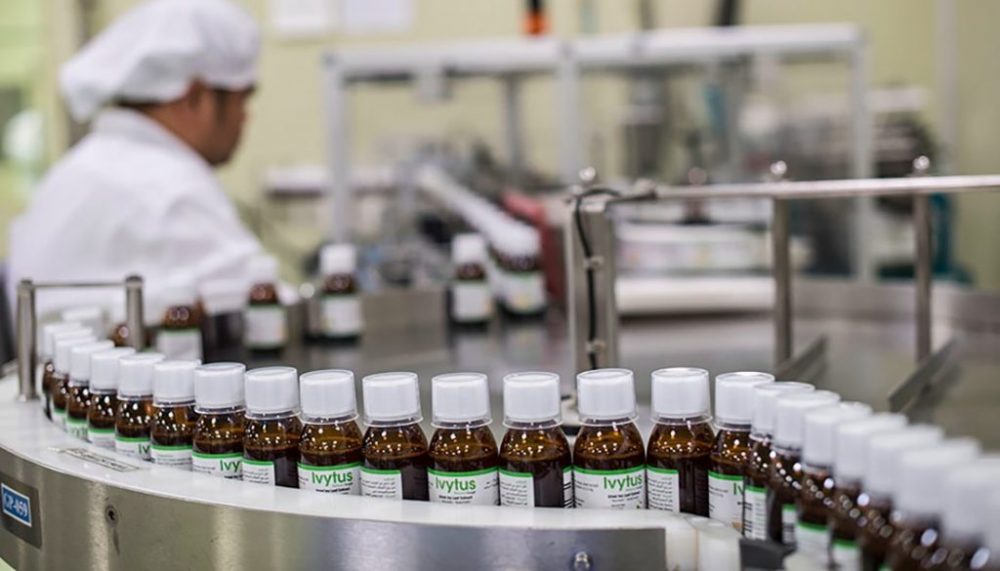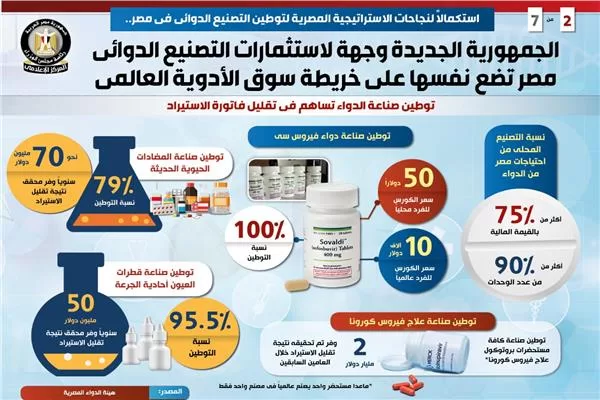Expanding the production of pharmaceuticals, securing the needs of the local market and enhancing the competitiveness of Egyptian medicines abroad are all part of the state’s recent efforts to encourage investment in the sector and implement giant projects for this purpose.
Egypt is one of the largest drug producers in the Middle East and Africa and is ranked as the fourth most attractive drug market in Africa, according to a study conducted by the Senate, Egypt’s upper house of parliament, in May this year.
“The Egyptian drug industry is one of the most successful sectors, but it is still focused on the local market and largely depends on traditional technology,” the study said.

It also pointed out that pharmaceutical exports were up 40 per cent between 2021 and 2022.
By leveraging new technologies, implementing innovative marketing strategies, and revising existing regulations, Egypt has the potential to significantly increase the value of pharmaceutical exports to a projected $5 billion by 2030, the authors of the study said.
Egypt has 170 licensed pharmaceutical factories of which152 are owned by the private sector, nine by the public sector and nine by multinationals,” the study said, indicating that the Egyptian local pharmaceutical industry covers 90 per cent of the local market demand.
“But still ten per cent of the domestic demand is supplied by imports since they are highly specialised and more complex, such as cancer drugs,” the study noted.
Narrowing this gap is a strategic goal of the Egyptian state, and the existence of such gap has undoubtedly prompted the state’s efforts to consider establishing a city of medicine.
The city of medicine, also known as GYPTO Pharma, is a specialised hub in manufacturing various medicines and vaccines, occupying an area of a total 180,000 square metres in Khankah, Qalyoubia, north of Cairo, making it the largest pharmaceutical hub in Egypt and the MENA region.
President Abdel Fattah El Sisi decreed the establishment of this venture and the first phase of Medicine City was opened in April 2021.
The state’s vision was to establish a national pharmaceutical entity that operates per the global standards towards achieving various strategic aims at the forefront of which is enabling the Egyptian citizen to access safe and efficient medicine that is compliant with international standards and at affordable prices.
Mohsen Hassan, head of the commercial department at Zeta Pharma, said the key objectives of the project are to achieve self-sufficiency, enhance safety, and attract investment.
“The decision to establish Medicine City is a great boost to the Egyptian drug market not only to narrow the shortages in the list of essential drugs for the local market, but also to unlock a wider field for exporting the city’s production upon fulfilling the domestic demand needs,” Hassan told this newspaper.
“It is also crucial to foster new pharmaceutical industries, such as raw materials and to expand into the manufacturing of cancer treatments,” he added.
Hassan said establishing partnerships with the private sector in the pharmaceuticals industry is necessary for the state, investors and patients.
“The private sector has many strong points, starting with large financial capabilities, flexibility, swift decision-making, and the efficient management of both finances and resources. The private sector can also attract foreign investment and expertise,” Hassan said.
He noted that Egypt lacked the capacity to produce raw materials, which means reliance on imports.
“The private sector can make up these shortcomings and help localise the pharmaceuticals industry, which will boost the national economy and reduce the country’s import bill,” Hassan said.






Discussion about this post